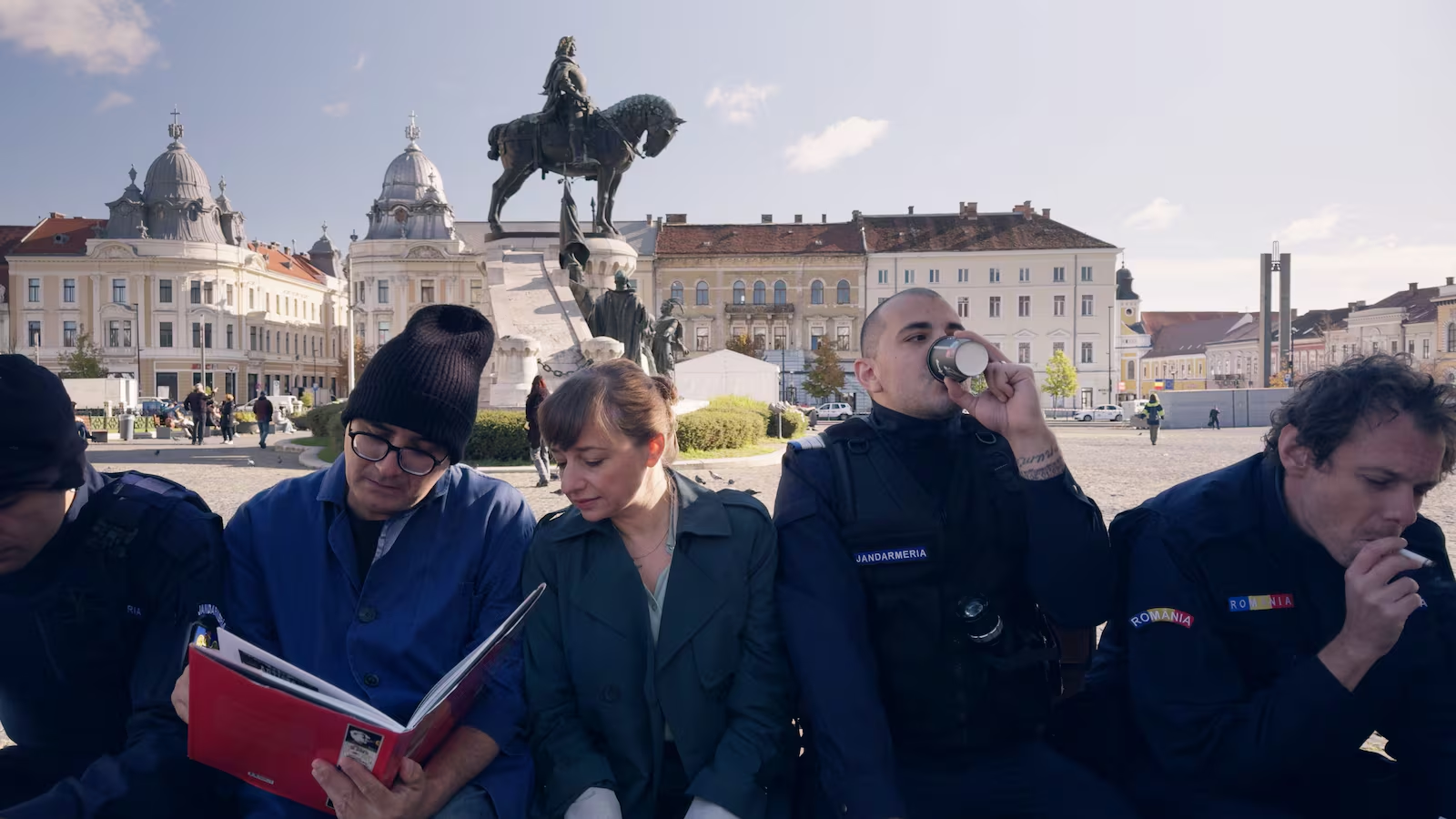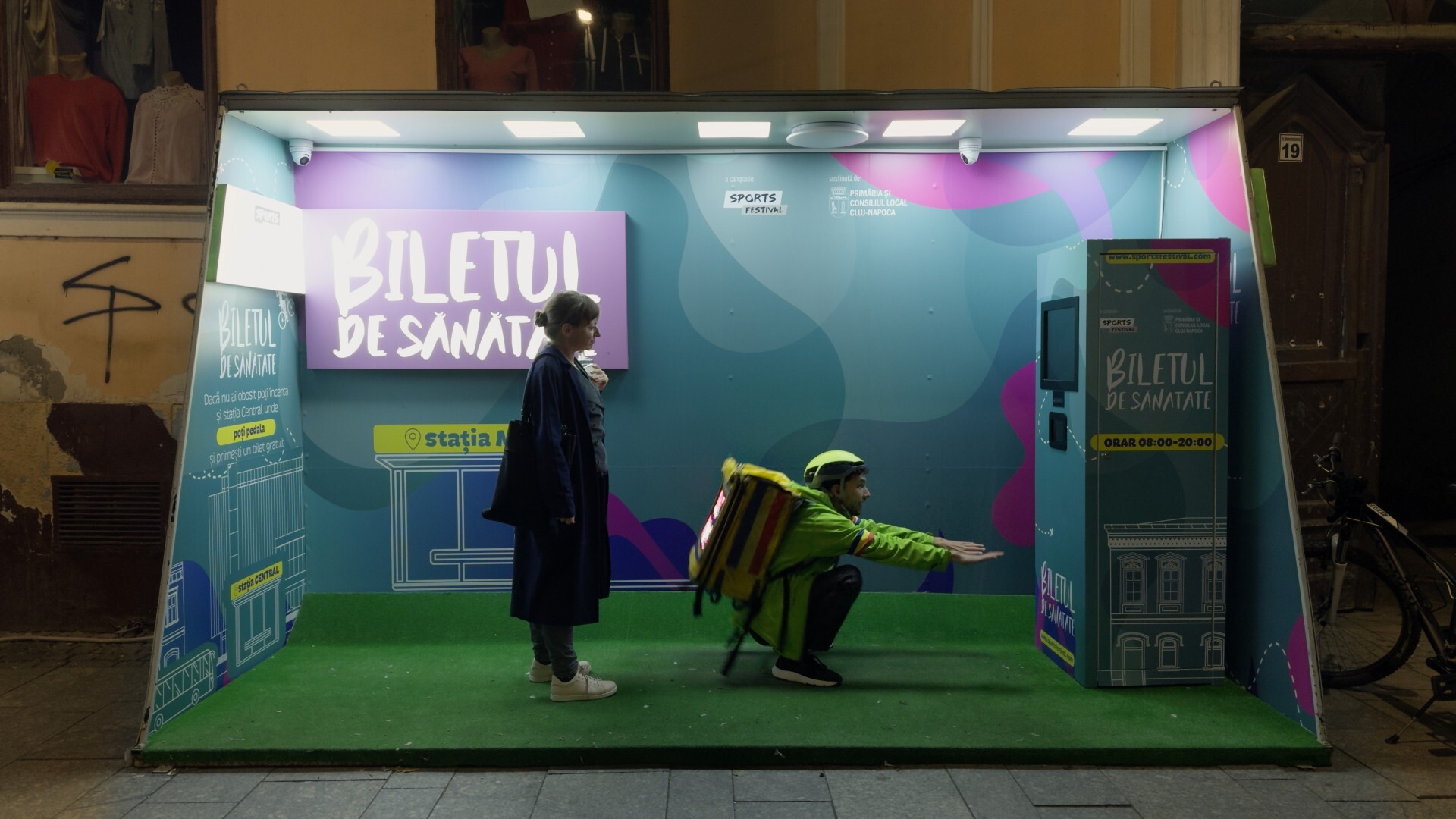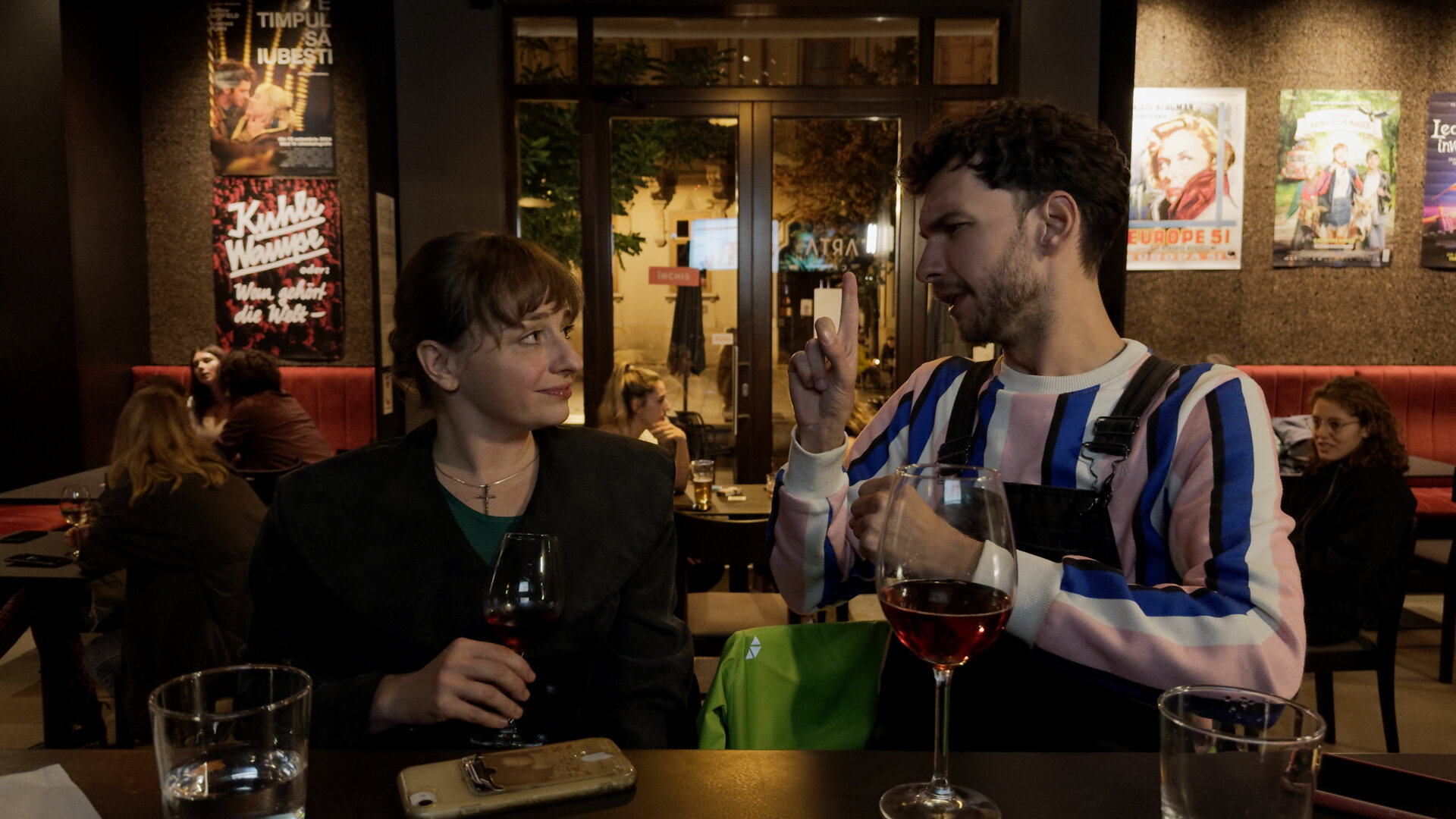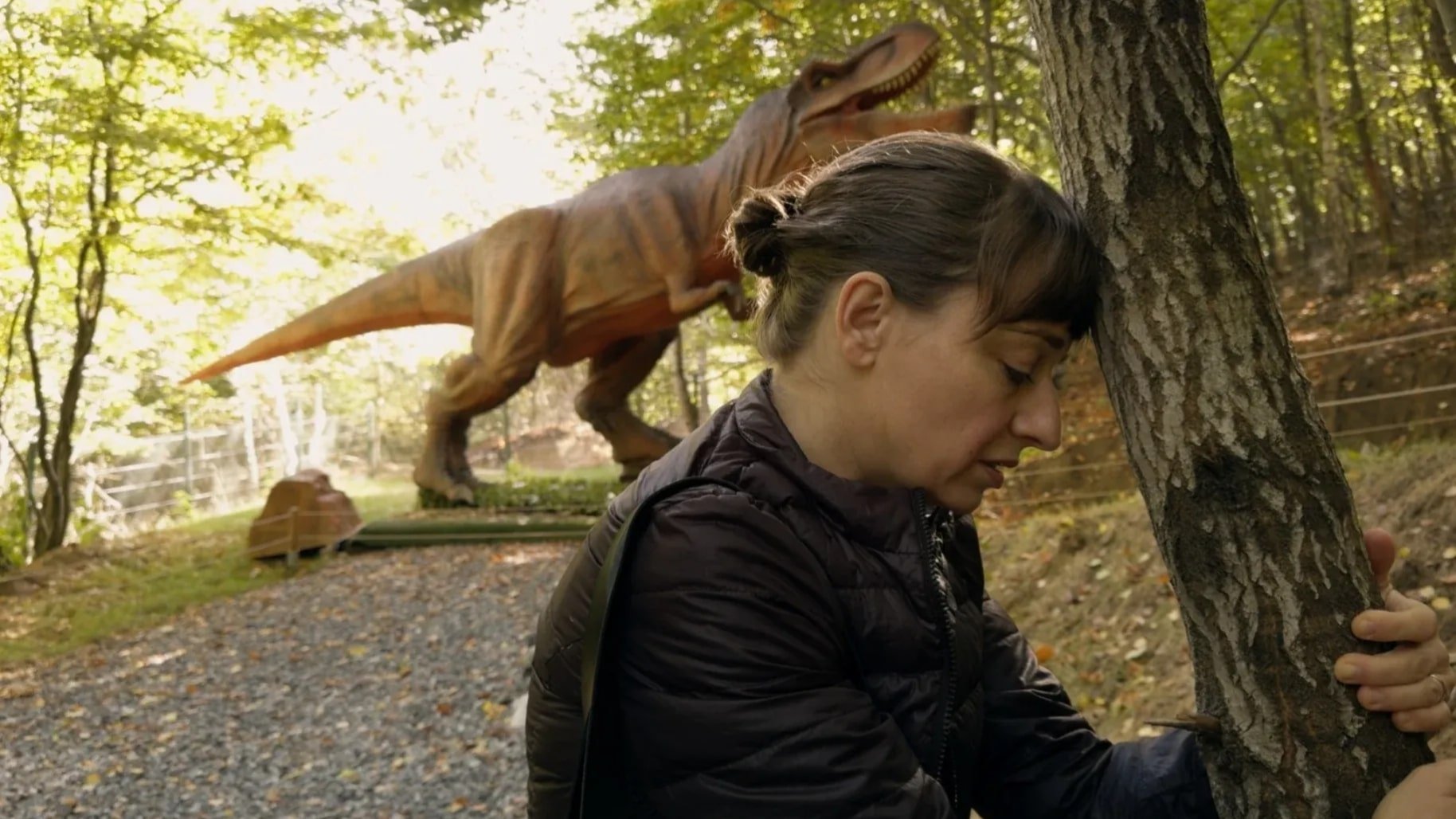After a man whom bailiff Orsolya is meant to evict commits suicide, she seeks outlets for her guilt in various conversations while wandering through Cluj, in Radu Jude’s latest razor-sharp dissection of our world’s absurdism..
“I see no reason to arrest you, however great your need for self-flagellation,” Orsolya is told by a detective after ‘the incident’. And so she then seeks outlets among various people around her to either rid herself of her guilt, or perhaps to confirm it.
We see the reason for her guilt earlier, in the second scene of Radu Jude’s Kontinental ’25. Orsolya, as a bailiff, is responsible for evicting a gambling-addicted alcoholic. The dilapidated basement flat he’s being forced to leave was his last lifeline preventing homelessness – in the film’s opening scene we see him cursing and raging through the city, scavenging for deposit bottles. While Orsolya and her police officers wait outside for the man to pack his belongings, he commits suicide inside. This explains her guilt – even though everyone she speaks to about it keeps repeating that she bears “no legal responsibility”.
Legally perhaps not, but morally? Or have we simply stopped discussing that altogether? Are we all so firmly in the grip of a system that makes us all complicit in exploitation and worse that we’d rather sidestep that question?
Trust Romanian filmmaker Radu Jude to confront us with precisely this. Ten years ago his Aferim! played at festivals, and in the intervening decade he became one of our era’s most defining
directors through films like Bad Luck Banging or Loony Porn (Golden Bear 2021) and Do Not Expect Too Much from the End of the World. With razor-sharp precision he dissects a hyper-capitalist reality that has become so absurd that satire can barely keep pace. But Jude manages to make us laugh at how absurd it all is, how absurd we ourselves are, and thereby sets us thinking.
In this case through a keen eye for public space, and how it’s being devoured by meaningless new developments with ever more private territory. Significantly, the film is set in Cluj, the capital of Transylvania, a region that Romania nabbed from Hungary. (Jude ended up in Cluj because he’s working on a film about Dracula).
Jude shot Kontinental ’25 on iPhones and doesn’t make much effort to disguise this – in some scenes you can see the autofocus momentarily jump to the wrong focal point. Immediacy was clearly more important than aesthetics; hence that year in the title. “Property developers run Romania,” Orsolya says at one point. “They’re crooks. And I have to defend them.” Everyone in the film is trapped – everyone in Romania, everyone on the European continent – caught in a system of exploitation they might not agree with, but which they (we!) continue to participate in nonetheless.
Joost Broeren-Huitenga








